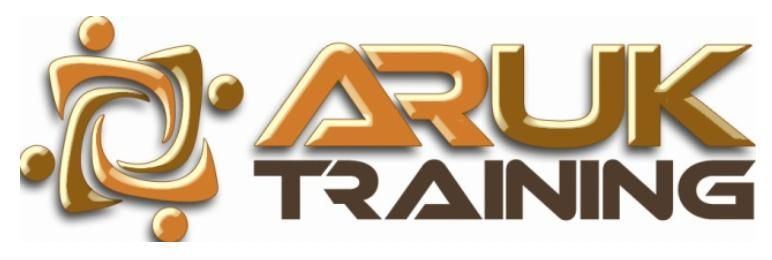
Managing Equipment Maintenance and Reliability (IFMAM Workshop 3)
Course ID: 2508250101246EGI
Course Dates : 25/08/25 Course Duration : 5 Studying Day/s Course Location: London, UK
Language: Bilingual
Course Category: Professional and CPD Training Programs
Course Subcategories: Operations and Process Excellence
Course Certified By: * Projacs Academy
* Professional Training and CPD Programs
Certification Will Be Issued From :
KSA
Course Fees: £4,838.34
Vat Not Included in the price. VAT may vary depending on the country where the course or workshop is held.
Click to Pay
Date has passed please contact us Sales@e-s-hub.com
Course Information
Introduction
The discipline of equipment maintenance and reliability management is a cornerstone of operational excellence in industries ranging from manufacturing to energy production. As organizations strive to optimize performance, minimize downtime, and extend the lifespan of critical assets, the need for structured and strategic approaches to maintenance becomes paramount. In an era where technological advancements and evolving operational demands are reshaping industrial practices, professionals must possess the skills to anticipate, diagnose, and mitigate equipment failures effectively. This course addresses these needs by equipping participants with advanced frameworks and tools for managing maintenance and reliability.
A notable challenge across industries is the persistent gap between theoretical knowledge of maintenance principles and their practical implementation. Many organizations struggle with reactive maintenance strategies that lead to costly breakdowns and inefficiencies. For instance, a case study from a leading automotive manufacturer revealed that unplanned downtime due to inadequate maintenance protocols cost the company millions annually. By integrating predictive maintenance techniques and reliability-centered methodologies, such losses can be significantly reduced. The course bridges this gap by combining theoretical insights with actionable strategies, ensuring participants can apply best practices in real-world scenarios.
Reliability engineering is not merely about fixing what is broken; it is about preventing failures before they occur. Rooted in established theories such as Total Productive Maintenance (TPM) and Failure Mode and Effects Analysis (FMEA), the course delves into the systematic identification of potential failure points and the development of proactive solutions. These methodologies have been widely adopted in industries like aerospace and oil and gas, where the stakes of equipment failure are exceptionally high. Participants will gain a deep understanding of how these frameworks can be tailored to suit diverse operational contexts.
For individuals, mastering the principles of equipment maintenance and reliability translates into enhanced career prospects and leadership capabilities. Professionals equipped with these skills are better positioned to contribute to organizational goals, drive innovation, and foster a culture of continuous improvement. Organizations, on the other hand, benefit from improved asset utilization, reduced operational costs, and heightened safety standards. A recent industry report highlighted that companies investing in reliability programs experienced a 20% increase in overall equipment effectiveness (OEE).
The relevance of this course extends beyond traditional manufacturing settings. With the rise of Industry 4.0 technologies such as IoT-enabled sensors and machine learning algorithms, the maintenance landscape is undergoing a transformation. These tools enable predictive analytics, allowing organizations to transition from time-based to condition-based maintenance. However, leveraging these advancements requires a solid foundation in reliability principles. The course ensures participants are well-versed in both conventional and cutting-edge approaches, preparing them to thrive in an increasingly digitalized environment.
Through interactive sessions, case studies, and hands-on exercises, participants will explore practical applications of the course material. For example, attendees will analyze a scenario where predictive maintenance was implemented in a power plant, resulting in a 30% reduction in unplanned outages. Such examples underscore the tangible impact of effective maintenance strategies and reinforce the value of the skills acquired during the workshop.
Objectives
By attending this course, participants will be able to:
Analyze the key principles of Total Productive Maintenance (TPM) and apply them to improve equipment efficiency.
Evaluate the root causes of equipment failures using Failure Mode and Effects Analysis (FMEA).
Design predictive maintenance strategies leveraging IoT and data analytics tools.
Implement reliability-centered maintenance (RCM) frameworks to optimize asset performance.
Assess the financial impact of maintenance decisions on organizational profitability.
Develop risk mitigation plans to enhance safety and compliance in maintenance operations.
Apply best practices for fostering a culture of continuous improvement in maintenance teams.
Who Should Attend?
This course is ideal for:
Maintenance managers and engineers seeking to enhance their technical expertise and leadership capabilities.
Operations directors and plant supervisors responsible for optimizing asset performance and minimizing downtime.
Reliability engineers and analysts aiming to deepen their understanding of predictive and preventive maintenance strategies.
Consultants and advisors tasked with guiding organizations through digital transformation in maintenance practices.
These groups will find the course valuable as it addresses the pressing need for structured maintenance strategies and provides actionable insights to achieve operational excellence. While prior experience in maintenance or reliability is beneficial, the course is designed to accommodate intermediate learners who already possess foundational knowledge of industrial operations.
Training Method
• Pre-assessment
• Live group instruction
• Use of real-world examples, case studies and exercises
• Interactive participation and discussion
• Power point presentation, LCD and flip chart
• Group activities and tests
• Each participant receives a 7” Tablet containing a copy of the presentation, slides and handouts
• Post-assessment
Program Support
This program is supported by:
* Interactive discussions
* Role-play
* Case studies and highlight the techniques available to the participants.
Daily Agenda
The course agenda will be as follows:
• Technical Session 08.30-10.00 am
• Coffee Break 10.00-10.15 am
• Technical Session 10.15-12.15 noon
• Coffee Break 12.15-12.45 pm
• Technical Session 12.45-02.30 pm
• Course Ends 02.30 pm
Course Outlines
Foundations of Equipment Maintenance and Reliability
Overview of maintenance management principles and their role in operational success.
Introduction to Total Productive Maintenance (TPM) and its eight pillars.
Understanding the lifecycle of equipment and its impact on maintenance planning.
Key performance indicators (KPIs) for measuring maintenance effectiveness.
Day 2:
Failure Analysis and Risk Management
Fundamentals of Failure Mode and Effects Analysis (FMEA).
Identifying and prioritizing critical failure modes in industrial equipment.
Risk assessment techniques for mitigating maintenance-related hazards.
Case study: Applying FMEA in a chemical processing plant.
Day 3:
Predictive and Preventive Maintenance Strategies
Principles of predictive maintenance and its advantages over reactive approaches.
Leveraging IoT and sensor technologies for condition monitoring.
Developing preventive maintenance schedules based on equipment usage patterns.
Practical exercise: Creating a predictive maintenance plan for a hypothetical facility.
Day 4:
Reliability-Centered Maintenance (RCM) Frameworks
Core concepts of RCM and its application in asset management.
Steps for conducting an RCM analysis and identifying critical systems.
Integrating RCM with existing maintenance workflows.
Group activity: Designing an RCM strategy for a manufacturing line.
Day 5:
Advanced Topics and Implementation Roadmap
Financial evaluation of maintenance programs and ROI analysis.
Strategies for fostering a culture of continuous improvement in maintenance teams.
Compliance requirements and regulatory standards for equipment maintenance.
Developing an actionable implementation plan for organizational adoption.



















































